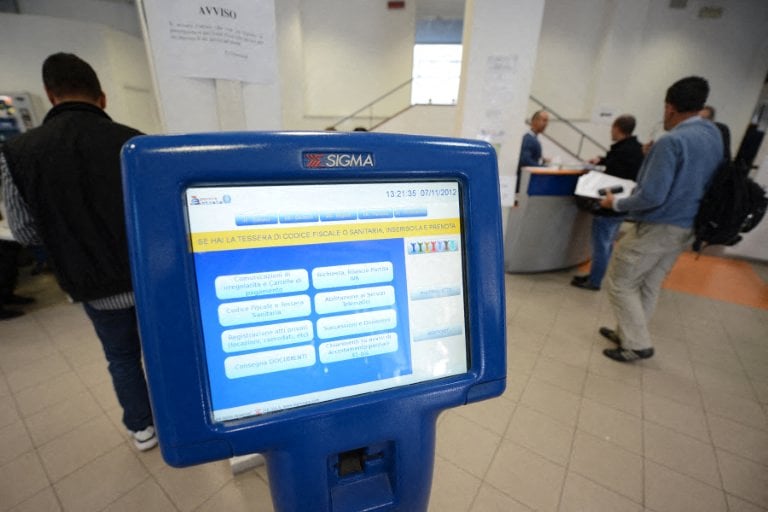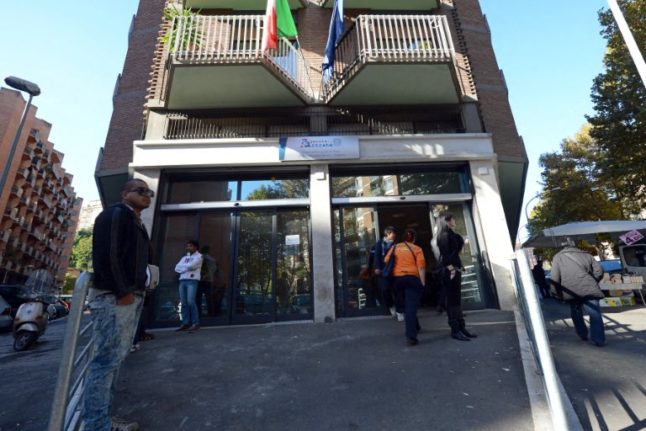The Italian inland revenue agency (Agenzia delle Entrate) was preparing to announce plans this week to cut queues at tax office counters and make the Italian tax system more user-friendly, news agency Ansa reported on Wednesday.
Appointments for the “vast majority” of services for which taxpayers normally visit Agenzia delle Entrate offices will soon become bookable online, the agency was set to announce at the publication of its operational plan for 2024-2026 ahead of the coming tax season, according to Ansa.
Moving to a mostly appointment-based system will put an end to the current need to take a numbered ticket and wait in line to be seen at a counter for most services, the agency reportedly hopes.
READ ALSO: Why is Italy’s government being accused of helping tax dodgers?
By 2026, the plan is to make 90 percent of in-person tax office services available via appointments bookable online.
The plan aimed to further cut down on queuing at offices by making up to 87 percent of tax services accessible digitally through the agency’s website.

The agency was also to continue the push for more people to use a pre-filled online income tax return, which has already been an option for several years for anyone who needs to file the 730 tax form.
Around 24.5 million people currently use the pre-filled 730 form, and the number was expected to increase by more than half a million by 2026, the agency said.
READ ALSO: When do I need to start paying Italian taxes?
To “improve relations with the taxpayer”, the agency was also set to pledge to pay VAT refunds within 75 days and to send out tax notices earlier.
The tax agency also planned to increase checks and audits, which it said were projected to bring in at least an additional 11.2 billion euros in tax revenue annually from 2024.
READ ALSO: Five essential things to know about filling out your Italian tax return
The plans were revealed amid a push by the Italian government to introduce reforms making taxes easier to pay and to collect, as the state continues to struggle to recover billions in unpaid tax and fights a longstanding and widespread issue with tax evasion.
Italian Prime Minister Giorgia Meloni last week called for a wider overhaul, telling parliament the current Italian tax system was “disproportionate, illogical and vexatious… and quite useless too.”
Her plans for further changes would create “a new idea of Italy, closer to the needs of taxpayers and companies,” she said, though critics immediately denounced her proposals as a “gift to tax dodgers”.
Italy has lost some 932 billion euros to tax evasion over the past ten years alone, according to estimates from financial newspaper Il Sole 24 Ore.



 Please whitelist us to continue reading.
Please whitelist us to continue reading.
It’s been my experience that even with an appointment you have to take a ticket or wait in line without your appointment times being triaged. Especially true at Entrate. Gaging if you’ll even get to the door while standing in line when you are due for your appointment is nearly impossible. Hoping process is introduced on site that conforms to new systems.